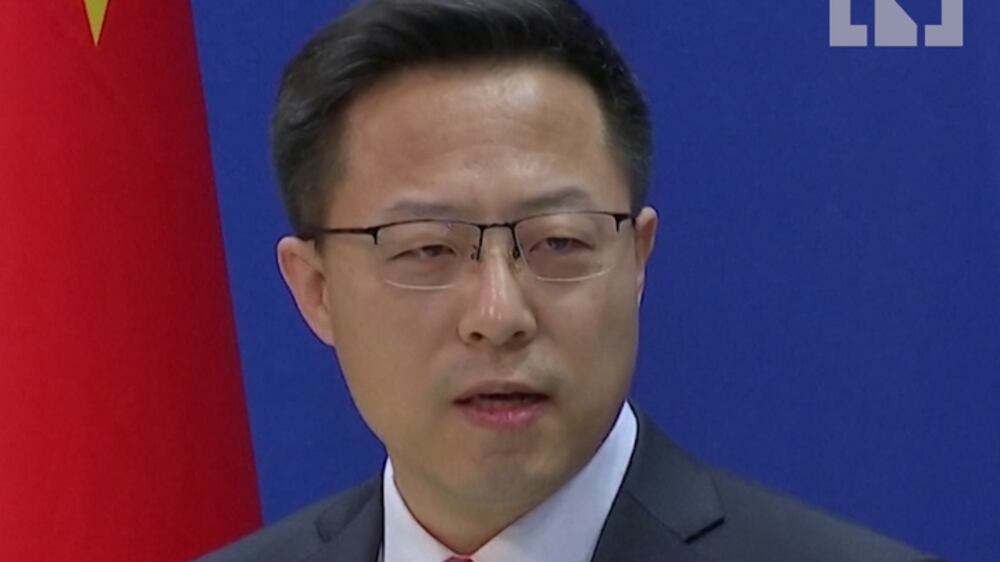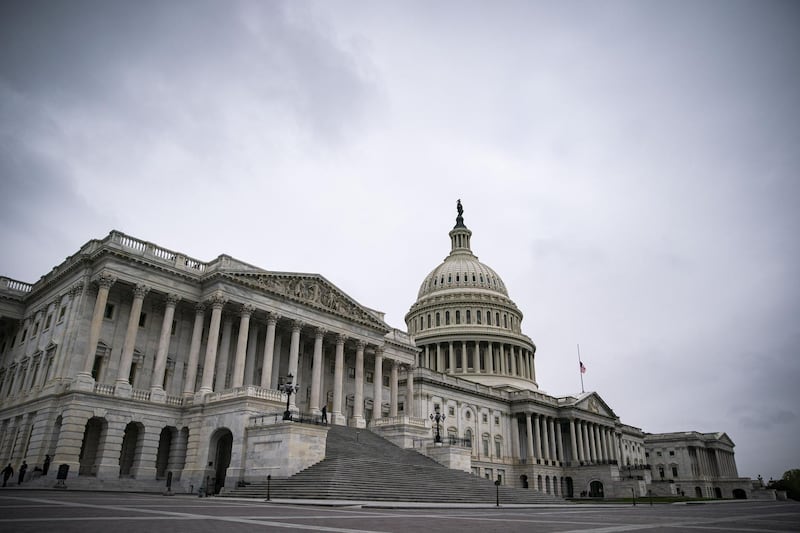US President Joe Biden is set to nominate veteran diplomat Nicholas Burns as Washington's ambassador to Beijing, two sources familiar with the deliberations confirmed to The National.
The nomination is expected to happen anytime in the next two weeks and was first reported by Bloomberg in February. Axios reported on Thursday that Mr Burns is now the only contender.
Sources familiar with the nomination process said it is in the final stage, and an announcement from the White House should be made in the next fortnight.
Mr Burns, 66, is currently a professor of diplomacy and international relations at Harvard University.
He brings decades of foreign service experience to the position, having served in the government for 27 years, including as under secretary of state for political affairs from 2005 to 2008, US ambassador to Nato, and has also worked in Jerusalem, Cairo and Athens.
During the 2020 presidential campaign, Mr Burns advised Mr Biden. He has a close working relationship with Secretary of State Antony Blinken as well as Jake Sullivan, Mr Biden's national security adviser, and John Kerry, the US climate change envoy.
Mr Burns served on Mr Kerry's foreign affairs policy board from 2014 to 2017.
It is this career service, familiarity with the US government and with senior Biden aides that tipped the scales in Mr Burns's favour against other contenders.
Those included Chicago's former mayor Rahm Emanuel, former trade representative Charlene Barshefsky and Pete Buttigieg, who is now transport secretary.
Ryan Haas, a senior fellow at the Brookings Institute’s Centre for East Asia policy, saw Mr Burns as someone who can convey US concerns “with authority and clarity” to China at a turbulent time in the relationship.
"Ambassador Burns is one of America's most experienced and respected diplomats. He would bring to the job gravitas, a proven record as an effective negotiator and the esteem of leaders on both sides of the political aisle," Mr Haas told The National.
He described Mr Burns as an asset in managing the China relationship as he can convey differences “with clarity and authority, while at the same time exploring co-ordination on issues that could advance America’s interests, including on climate, public health, Iran and North Korea.”
In an interview with CNN in February, Mr Burns said that the US-China relationship was “the most important and challenging for the US.”
“We are in a very competitive mode … and we don’t want to give up our military primacy in the Indo-Pacific, which we have held since the Second World War, to China,” he said.
Benn Steil, director of international economics at the Council on Foreign Relations, saw Mr Burns’s coming nomination as a signal of heightened importance for the China-US relationship from the Biden team.
China rebukes US after Alaska talks

"Nominating Ambassador Burns – who is himself eminently qualified to be secretary of state – would signal that the president is treating US-China relations with the utmost seriousness," Mr Steil told The National.
“He is an experienced, knowledgeable, articulate and iron-willed career diplomat who will communicate with China in a clear but respectful manner.”
The immediate goal, Mr Steil added, is “preventing a free fall in US-China relations” as the two global rivals continue to clash over arms deployment in the Pacific, trade and cybersecurity.
In his interview with CNN, Mr Burns struck a strong message on protecting US companies.
“We certainly want to protect American companies from mistreatment by the Chinese companies on subsidies, on dumping, on patent law, on intellectual property,” he said.
The veteran diplomat advocated bringing forth a coalition of countries that include Japan, Nato allies, Australia, Canada, South Korea and the European Union “to go together to the Chinese and to say, you have to play by the rules on trade and if you don’t, there’s going to be penalties".
Mr Biden is hosting Japanese Prime Minister Yoshihide Suga on Friday, and will be hosting South Korean President Moon Jae-in next month.
In a February interview, Mr Burns reiterated Mr Biden’s view that the US is “in a battle of ideas” with China, in a fight between democracy and an authoritarian state model.
His nomination, once announced, will require confirmation by Congress.








